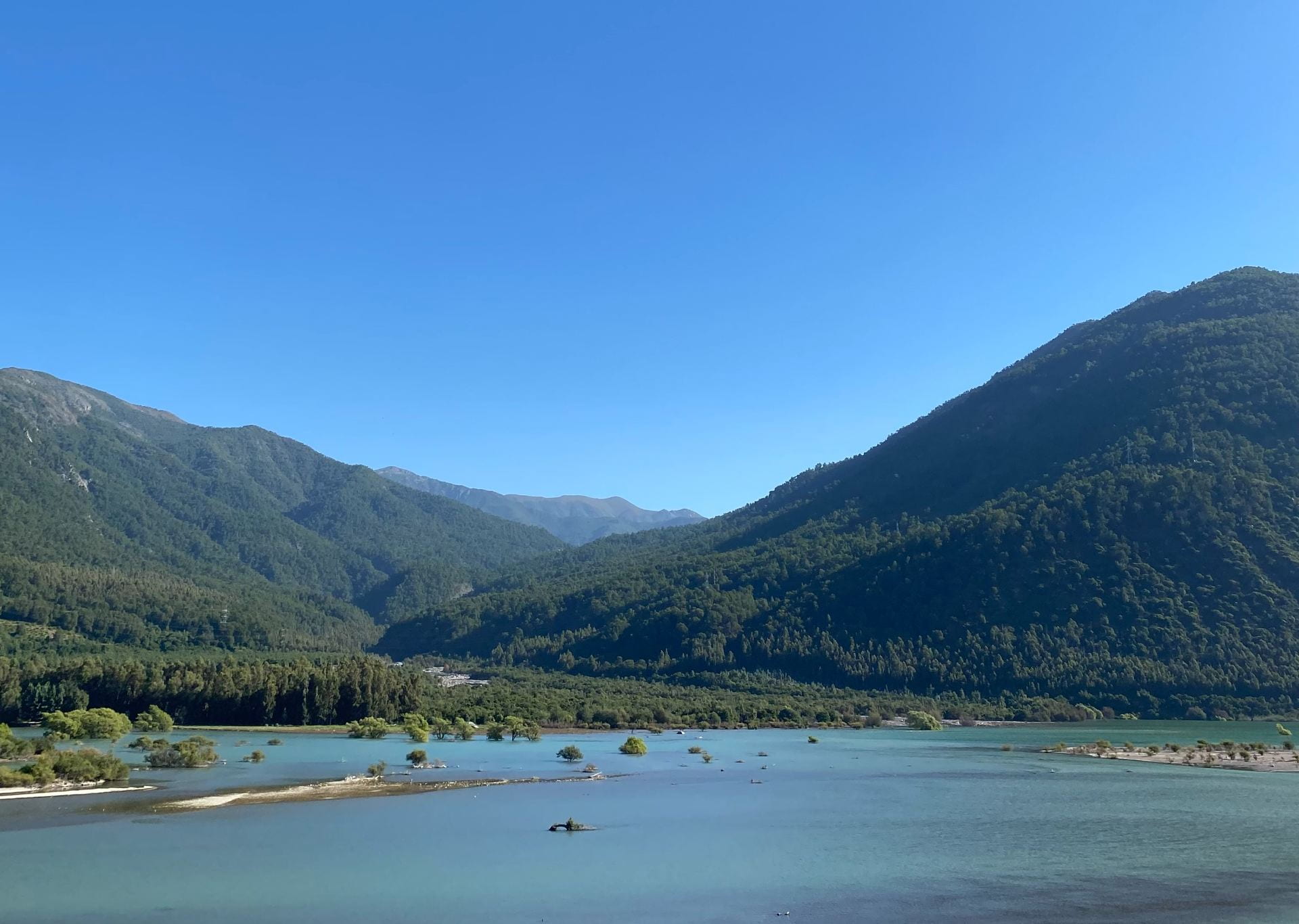
As I sit here at my desk reflecting on the month that has been, it seems almost impossible to articulate everything I felt, and lived. Yet, although the dust has barely settled on our time in Chile, already I find myself recognising some of the changes that have emerged in my perspective and life since embarking on this haerenga.
One thing that I remember hearing someone say is that often on an overseas experience, the moments of greatest change and insight in a person can arise from moments that are seemingly mundane, appearing otherwise ordinary. And it’s true. Cooking in the kitchen at 10pm with friends taught me how to chop garlic quickly, and that it’s okay to abandon the desire for perfection in favour of efficiency sometimes. Initially fumbling with the self-serve check out because I couldn’t understand anything only to be helped by a stranger taught me that kindness is everywhere, even if you can’t outwardly see it. Laughing our way through Spanglish coffee and food orders in the first week highlighted to me the centrality of language, and the art of innovation (alongside some thoughtfully used hand gestures) when words fail.
When you’re placed into an entirely different context, you learn all the things you take for granted. There were countless little things I realised I took for granted here at home. Drinking clean, cold water straight from the tap. Being able to ask a stranger for help, knowing that they will speak the same language as you. Putting toilet paper straight in the toilet (the plumbing systems in Chile leave much to be desired…). Driving a mere 20 minutes to walk through our native ngāhere within the Waitākere Ranges, or be greeted by the sight of the moana. Of course, there were significantly deeper things that I recognised I was taking for granted at home, too: the immense privilege of an education, particularly a university one – and being taught the invaluable tool of critical thought; access to knowledge; how much more recognised and treasured Māori culture is, relative to other places around the world where the fight for mana motuhake, cultural retention, and protection of indigenous rights is often far more invisible to the public consciousness; returning home to Aotearoa, to all of the things I treasure – the sound of tūī calling out in the evenings, the comforting embrace of Te Moana-nui-ā-kiwa; the knowledge that the land I stand atop holds the enduring legacies of my culture, and tūpuna – I now move with a renewed and profound sense of gratitude for all that makes up what it means to be truly ‘home’.
The wonderful people that surrounded me during the trip – once strangers, now dear friends – have taught me what it means to be resilient, to be tolerant, to be loving, to be vulnerable, to be empathic, and what it means to be from Aotearoa, especially so far from home. I could write endlessly about the impact every person has had on me, but I will keep it brief: ka nui taku aroha ki a koutou!
The beautiful thing about overseas experiences such as this is that it opens up the world to you in ways that you’d never dreamed possible. Before coming to Chile, I honestly didn’t know what to expect, being someone who didn’t neatly slot into the focus of the program – public health. I wasn’t a health major like many of the other students on this trip, nor did I know the slightest thing about Latin America as a whole, let alone Chile. A month later, it feels like my horizons have been expanded in ways that I am only beginning to grapple with – new career possibilities, shifts in perspective and mindset, blossoming relationships between countries and the people within them. Crucially, one of the most important things I hold coming out of this is an ongoing commitment to keep the PMSLA kaupapa going – continuing the dialogues of international exchange and innovation, strengthening the relationships and opportunities for collaboration between Aotearoa and Chile, and pushing for indigenous mana motuhake. Although this trip has now ended, I know this is only the beginning of many more possibilities to come.
I keep coming back to the metaphor of webs when thinking about PMSLA; webs of connection, relationality, and reciprocity bind us together in ways I didn’t necessarily realise prior to this trip. Embarking on this haerenga has shown me how we are intimately connected through these webs despite physical distance and geographical borders, bound by shared problems, obligations, and desires for thrivance. More than that, it has shown me the possibilities that lie in transcending such borders and grasping hold of the connections and insights we share.
There is far too much more to be said: thanks and acknowledgements to be expressed, learnings to share, and emotions to be unpacked… but I fear this post is starting to get a bit long. To conclude somewhere, I wanted to express my deepest gratitude and thanks to everyone I was able to share time with, and to everyone who contributed to making this trip possible – ngā mihi maioha. None of these experiences, insights or reflections would have come about if it weren’t for the people behind this kaupapa. Finally, to anyone contemplating the possibility of applying for a Prime Minister’s scholarship, or pursuing any sort of overseas travel for university, the following whakataukī comes to mind –
Kei ōu ringaringa te ao – the world is yours.
If there is even a small spark of interest within you, I would urge you to set it alight and see where it takes you. It could end up changing your life in ways you wouldn’t ever have dreamed. Karawhiua!
Me te aroha nui,
Saffron